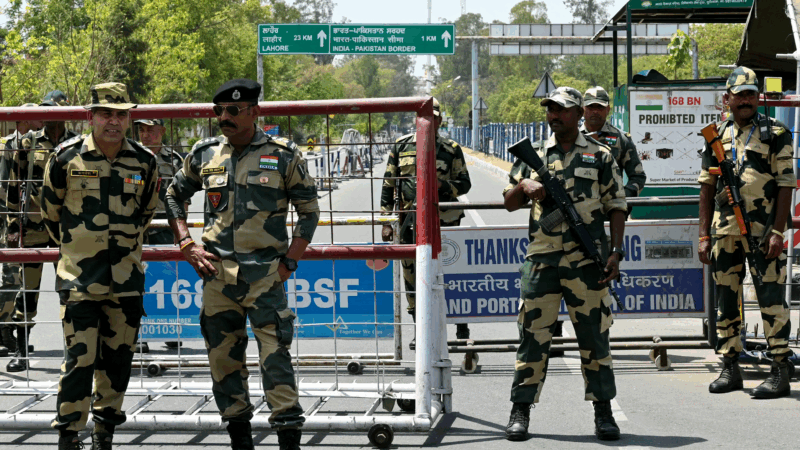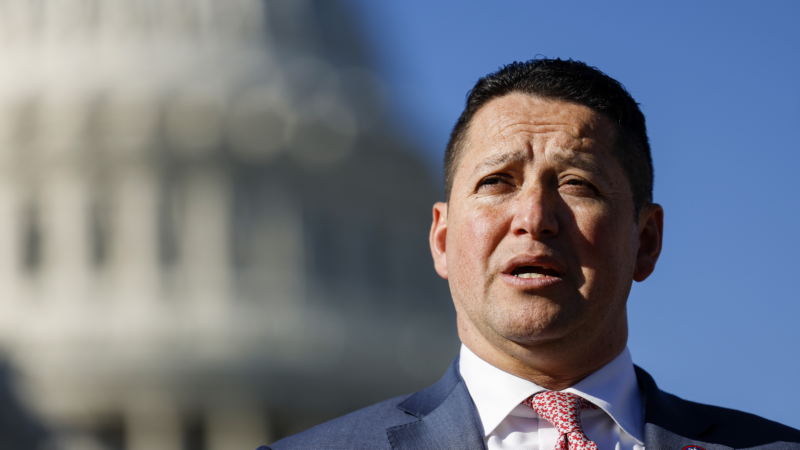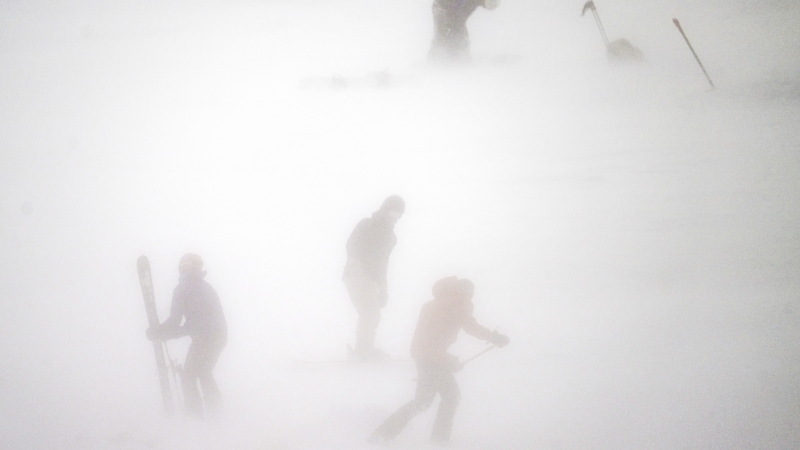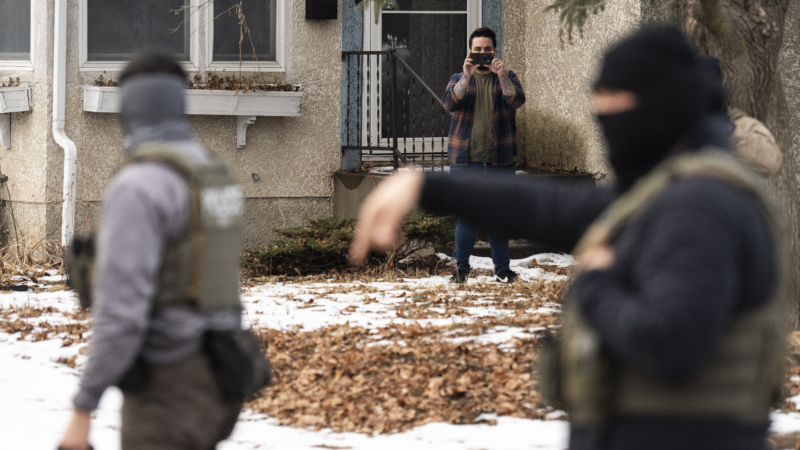India-Pakistan tensions escalate after deadly Kashmir attack
MUMBAI — Tensions between South Asia’s two nuclear-armed powers ratcheted up Thursday after India’s Prime Minister Narendra Modi vowed to pursue “to the ends of the earth” those behind a militant attack on Tuesday that killed 26 people in India-administered Kashmir.
“I say to the whole world: India will identify, track and punish every terrorist and their backers,” Modi said in English during a rally in the northern state of Bihar.
The tensions began rising after India pointed the blame at Pakistan for Tuesday’s deadly attack, in which gunmen ambushed tourists in a scenic meadow in Pahalgam and killed 26 men, mostly Hindus. Eyewitnesses told Indian media that in some cases, the gunmen asked their victims if they were Muslims before killing them.
India linked the attack to Pakistan after a group called Kashmir Resistance claimed responsibility on Telegram. India sees the group as a front for a militant group that it claims is backed by Pakistan’s military.
Pakistan’s deputy prime minister and foreign minister Ishaq Dar denied Pakistani involvement in a press conference Thursday. “India has time and again played the blame game,” he said, “and if there is proof of Pakistan’s involvement, please share it with us and the world.”
Indian officials and media noted the attack came days after Pakistan’s army chief Gen. Asim Munir described Kashmir as his country’s “jugular vein.” Both Pakistan and India control parts of the Himalayan territory. Both countries claim it in its entirety, and have gone to war over Kashmir multiple times.
On Wednesday, India’s foreign secretary announced a series of moves to pressure Pakistan, including expelling diplomats, shuttering a border crossing and crucially, suspending a decades-old water treaty between the two countries.
“The Indus Waters Treaty of 1960 will be held in abeyance with immediate effect until Pakistan credibly and irrevocably abjures its support for cross-border terrorism,” said the foreign secretary, Vikram Misri.
Following the Indian measures, Pakistan’s national security committee on Thursday announced a ban on Indian aircraft from Pakistani airspace. It also announced a suspension of all trade with India and the expulsion of a number of Indian diplomats. The number of employees at both countries’ diplomatic missions will be reduced from 55 to 30, including staff and diplomats, by the end of April, according to statements by both countries.
Pakistan said it would consider any move by India to hold back water as an “act of war,” according to a statement released by the office of Prime Minister Shehbaz Sharif.
“Water is a Vital National Interest of Pakistan, a lifeline for its 240 million people and its availability will be safeguarded at all costs,” the statement read. “Any attempt to stop or divert the flow of water belonging to Pakistan as per the Indus Waters Treaty, and the usurpation of the rights of lower riparian will be considered as an Act of War and responded with full force across the complete spectrum of National Power.”
The treaty divides six major rivers between India and Pakistan and prevents India from holding back or diverting water that is meant to reach Pakistan, a water-scarce country which relies on river water for its agriculture.
On Thursday afternoon, India-administered Kashmir police released a “Wanted” poster with names and sketches of three militants it said were involved in Tuesday’s attack. It identified two of them as Pakistani nationals and offered a cash reward of more than $20,000 for information leading to their “neutralization.”
A union purportedly representing the Indian film industry workers demanded the government ban an upcoming Bollywood film featuring Pakistani actor Fawad Khan. On Thursday, India also blocked the X handle of the Pakistan government.
India has not, so far, presented public evidence of Pakistani involvement in the attack. India’s right-wing news channels have blamed Pakistan and featured calls for retaliation. But some Indian defense analysts caution against armed action.
“India has a freer hand to escalate for the simple reason that it does not have any alliances or military partnerships,” says Ajai Shukla, a strategic affairs commentator and retired Indian army colonel. “The downside is that India will be fighting alone. There are limitations on the weaponry it can buy and use. And there’s the sorry fact that Pakistan and China and other countries tend to coalesce into an anti-India coalition of sorts.”
For many in Pakistan, the biggest worry is the possible impact of the water-sharing treaty suspension.
“What India can immediately do is shut off communication on water flow that it gives to Pakistan,” says Imran Khalid, an independent water analyst from Pakistan. In the long term, he warns, India could build dams, effectively reducing Pakistan’s access to water.
Like Shukla, Khaled cautions against further escalations. “India hasn’t said, we’re going to withdraw from the treaty. It’s only suspending it. And hence, I think there is room for both countries to approach this subject in a manner that is in line with the long history of cooperation.”
GOP Rep. Tony Gonzales faces pressure from party over affair allegations
The Texas Republican is facing calls from fellow House Republicans to resign, following allegations of an affair with a staffer who later died by suicide.
In pictures: Winter storm slams the east coast
Photos of cities in Connecticut, New York, New Jersey and Massachusetts as they cope with a powerful winter storm.
The FDA creates a quicker path for gene therapies
The Food and Drug Administration aims to evaluate treatments for rare diseases based on plausible evidence that they would work — without requiring a clinical trial first.
BAFTAs apologize after guest with Tourette syndrome uses racial slur during ceremony
A man with Tourette syndrome shouted a racial slur and other offensive remarks during the BAFTA awards ceremony Sunday. The BBC did not edit out his outbursts in its delayed broadcast.
‘Everything was in pieces:’ Lindsey Vonn describes grueling surgery on broken leg
In a recent video, the Olympic skier credits her surgeon with saving her leg from potential amputation.
A new lawsuit alleges DHS illegally tracked and intimidated observers
Observers watching federal immigration enforcement in Maine who were told by agents they were "domestic terrorists" and would be added to a "database" or "watchlist" are now part of a new federal class action lawsuit.








